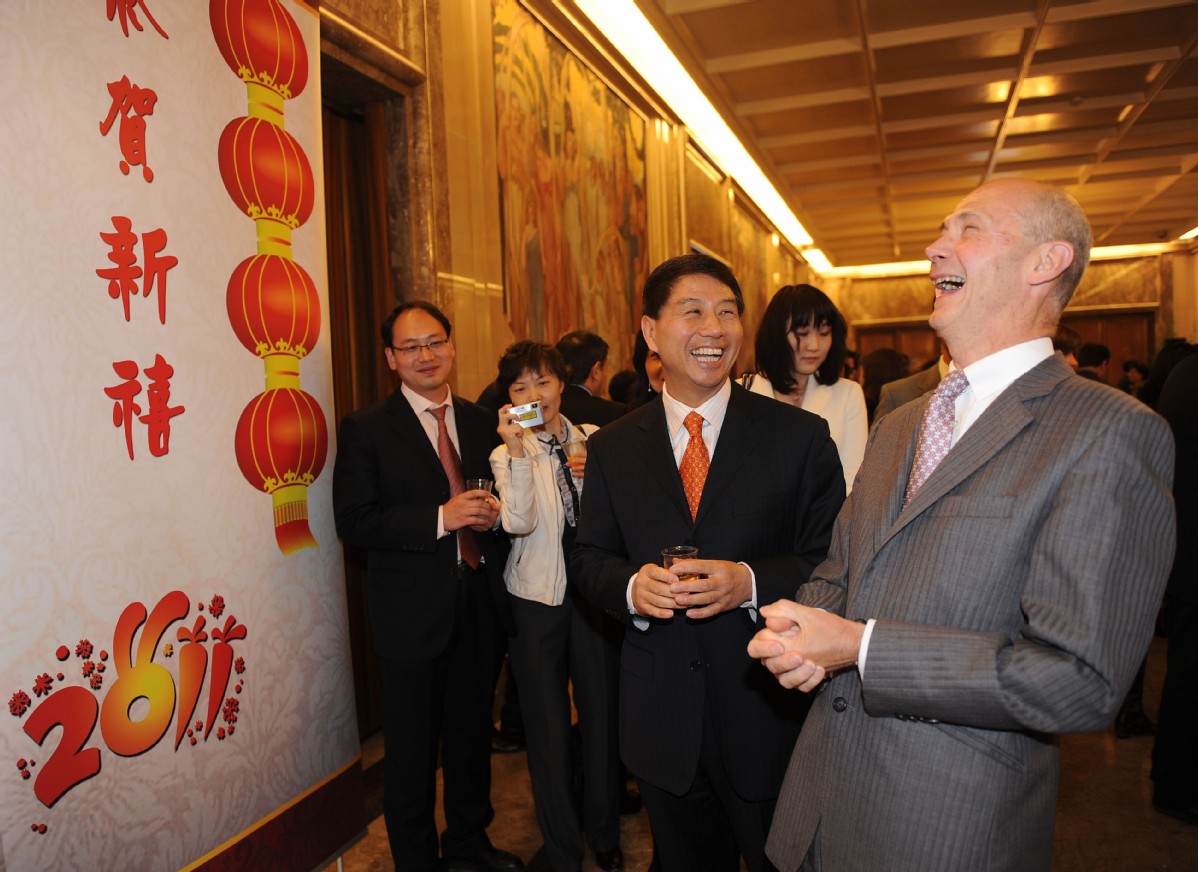
April 8, 1947 in Levallois-Perret, France
CAREER:
1981-83: Adviser to French Economics and Finance Minister Jacques Delors
1983-84: Deputy chief of staff, Office of the Prime Minister
1985-94: Chief of staff and representative of European Commission President Jacques Delors
1994-99: Member of the executive committee, then director-general, Credit Lyonnais
1999-2004: European trade commissioner, Brussels
2005-13: Director-general, World Trade Organization
2016-present: President, French committee of the Pacific Economic Cooperation Council
2018-present: Distinguished professor, China Europe International Business School
How reform path led to China's WTO entry

Lamy, who in the late 1990s and early 2000s served as trade commissioner for the European Commission in Brussels, was to be an important player in the talks that led to China joining the WTO.
He negotiated directly with the country's premier, Zhu Rongji, and its trade minister, Shi Guangsheng, to set terms for China's entry.
"It was a very lengthy process because, like with all trade negotiations, they are very complex," Lamy said, adding that Zhu "had to create a very careful balance" between those whose arms he needed to twist to open up more and those who resisted.
Lamy said there were two key issues to resolve during the lengthy negotiations.
"The biggest questions were market access-China had to open its markets on goods, agriculture, industry and, to some extent, services. Although there was a bit less emphasis on the latter," he said. "And then there was the issue of China abiding by WTO rules on intellectual property. Market access and IP protection were the two big wins for China's trade partners."
Although China's economic progress after 1978 was already impressive by the time of the negotiations, Lamy said there was no sense that the momentum would continue for the country to become the world's second-largest economy within a decade of entry.
"Those who had the long view knew that China was developing fast; the growth performance was already impressive. Probably few thought it was sustainable, but it has proved to be so," he said. "This is the major achievement of the Chinese system. China growing at 6 to 6.5 percent now (given the size of the economy), means much more than it growing at double-digit rates at the time (of entry)."
In addition to taking part in the negotiations for China's entry into the WTO, Lamy served as the organization's director-general from 2005 to 2013.
The WTO and China now face a number of challenges, with United States President Donald Trump bypassing the organization's rules-based framework by imposing tariffs on China and other countries.
"We all know that his tariffs are not WTO compliant," Lamy said. "There is uncertainty on whether Trump is after improving the trade regime or whether he is about getting rid of the trade regime. If he's about getting rid of the WTO and about removing multilateralism and moving to bilateralism, then I am quite convinced the European Union, Japan and China will not play his game."
Lamy is a fervent believer in preserving the rules-based order for all.
"This is why plan A is to keep everyone within the tent because there is a common interest in subscribing to this collective insurance policy against protectionism," he said. "If the US believe they can do without a collective insurance policy, then the others will have to move to plan B, which is to look at how a system without the US could work."
He said it is not inconceivable that the WTO could operate without the world's largest economy.
"For the moment, it is the big economy in the system, but it depends on whether you believe at the end of the day that having a collective system, a multilateral cooperation system is the right way to go. I think the EU, Japan, India, China and Africa believe this is so," he said.
Lamy also said that the US side's claims that its trade deficit with China is depriving American workers of jobs does not hold water.
"If it is a question of bringing back jobs to the US, it is already near full employment, so it must not be that relevant. It doesn't make sense. The US have had a trade deficit for a very long time, and I think most economies on this planet would agree that this has nothing to do with trade," he said.
"The US have a trade deficit because US consumers consume more and save less than the rest of the planet. And as long as the US benefit from this formidable privilege of having the dollar, they don't have a problem financing the deficit. If they had a problem financing the deficit, it might be an issue. It is not an issue."
Lamy insisted that if the US tried to somehow remove China from its global supply chain, so as to reduce its trade deficit with the country, it would just create new deficits with other countries.
"(All this) is not a question of a US-China trade deficit. Assuming Trump reduces the US-China trade deficit, but increases the US-Vietnam or the US-Thailand deficit, that will not change anything seriously," he said.
The G20 summit which concluded this month in Buenos Aires, however, called for reform of the multilateral system because it was "falling short of its objectives".


